I Spent Years Covering My Face With Makeup, Now I Want the Whole World to See It

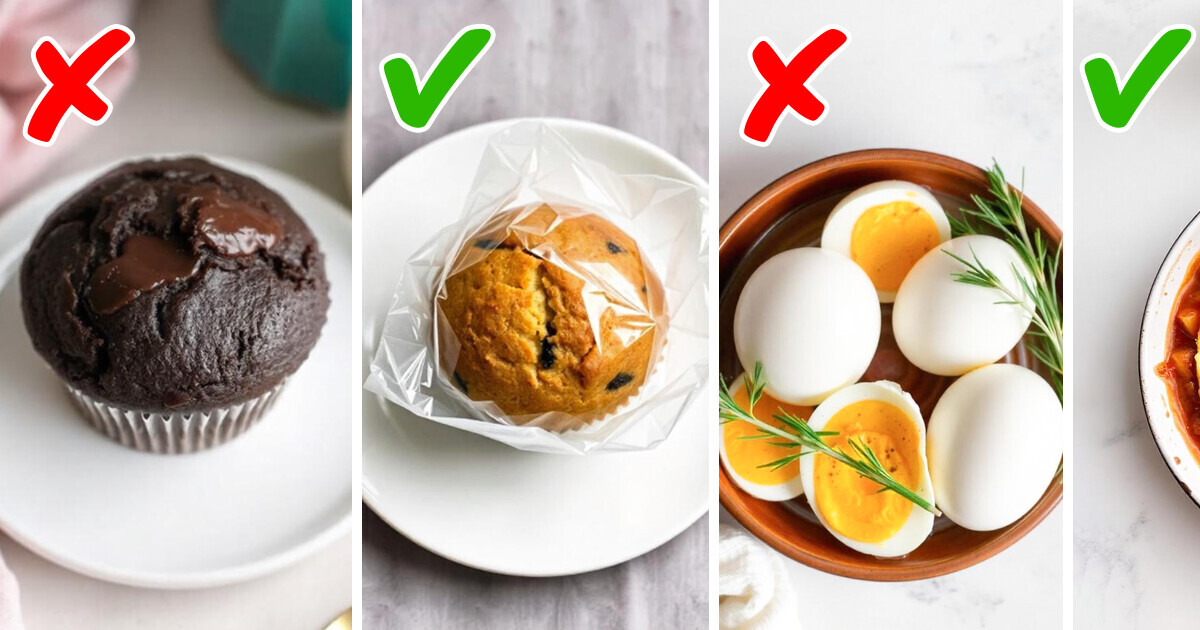
The allure of a hotel breakfast buffet is undeniable. Mountains of fluffy pancakes, colorful arrays of pastries, and the promise of endless coffee can make even the most disciplined eater weak in the knees. But beneath the glistening facade of abundance lies a minefield of potential pitfalls. Experienced travelers, armed with knowledge and a touch of healthy skepticism, know exactly what to skip to ensure a satisfying and safe start to their day.

Avoid: Savvy travelers steer clear of hot dishes like scrambled eggs, sausages, or bacon that aren’t kept at proper temperatures. Food safety experts warn that the “danger zone” between 40°F and 140°F (4°C to 60°C) is prime territory for bacterial growth. If hot foods aren’t being actively heated by chafing dishes or hot plates, they’re best avoided. Pre-made omelets or quiches sitting out without temperature control are also on the skip list.
Order Instead: Opt for made-to-order omelets or eggs cooked by a chef at a live cooking station. These are freshly prepared and typically served immediately, reducing the risk of bacterial growth. If you’re craving bacon or sausage, look for those being constantly replenished from the kitchen or kept in a heated chafing dish with an active flame underneath.
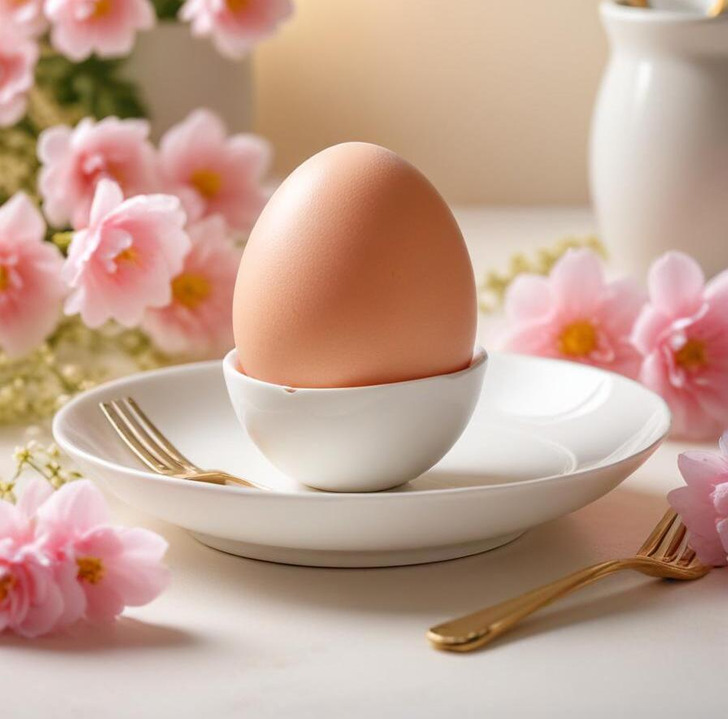
Avoid: Unless they’re freshly prepared to order, dishes featuring runny yolks or undercooked eggs are often passed over due to the risk of Salmonella. This includes soft-boiled eggs, eggs Benedict, or pre-made fried eggs sitting out on the buffet.
Order Instead: As mentioned earlier, made-to-order omelets or fried eggs from a live cooking station are your safest bet. If you’re craving boiled eggs, look for hard-boiled eggs kept in their shells, preferably chilled. Some hotels offer individual egg cookers where you can boil your own egg to your desired doneness.
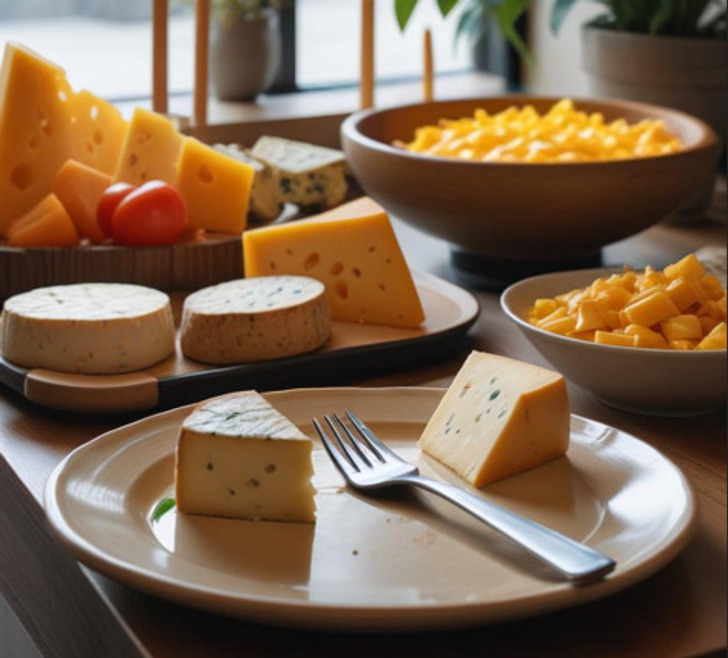
Avoid: Experienced travelers skip milk, yogurt, or cheese that isn’t properly chilled. These items are particularly susceptible to bacterial growth when left at room temperature for extended periods. Soft cheeses and cream-based desserts sitting out on the buffet table are especially risky.
Order Instead: Choose individually packaged yogurts or milk cartons from a refrigerated section. If you’re keen on cheese, go for hard cheeses like cheddar or Swiss, which are less prone to bacterial growth. For milk in your coffee or cereal, look for dispensers that are clearly chilled, or ask a staff member for fresh milk from the kitchen.
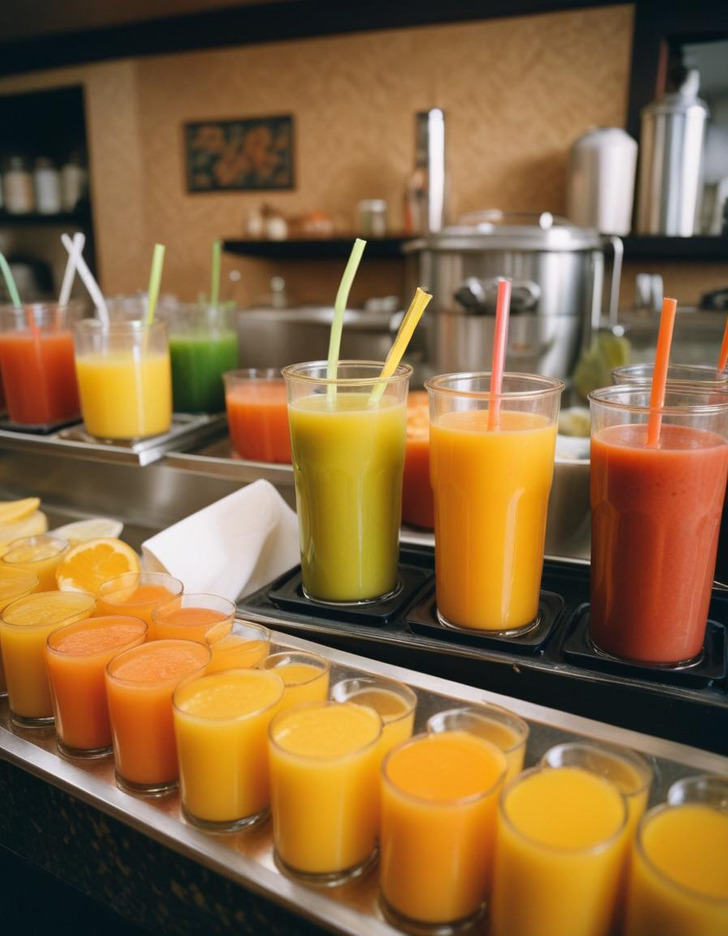
Avoid: While freshly squeezed juices can be tempting, they’re often passed over if not kept cold. Unpasteurized juices at room temperature can be a breeding ground for harmful bacteria. Large pitchers of juice sitting out on the buffet table for hours are a red flag for experienced travelers.
Order Instead: Opt for pasteurized, individual bottles of juice from a refrigerated case. If you’re set on fresh juice, watch for staff refilling dispensers frequently or, better yet, ask if they can prepare a fresh glass for you. Some high-end hotels offer made-to-order fresh juices, which can be a safer bet.
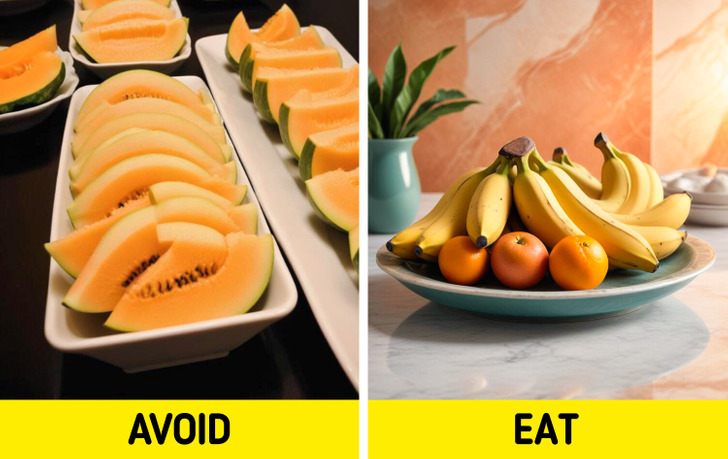
Avoid: Cut melons, particularly cantaloupe, are often avoided by those in the know. The rind can harbor bacteria, which can easily spread to the fruit’s flesh when cut. Similarly, any cut fruits that appear soft, discolored, or have been sitting out for a while are usually skipped. Pre-cut fruit salads in large bowls are another item experienced travelers often pass on.
Order Instead: Choose whole fruits with peels like bananas, oranges, or apples. These provide natural protection against contamination. If you’re craving melon or berries, look for fruits that are being actively replenished or kept on ice. Some hotels offer individually portioned fruit cups, which can be a safer option if they’re kept properly chilled.
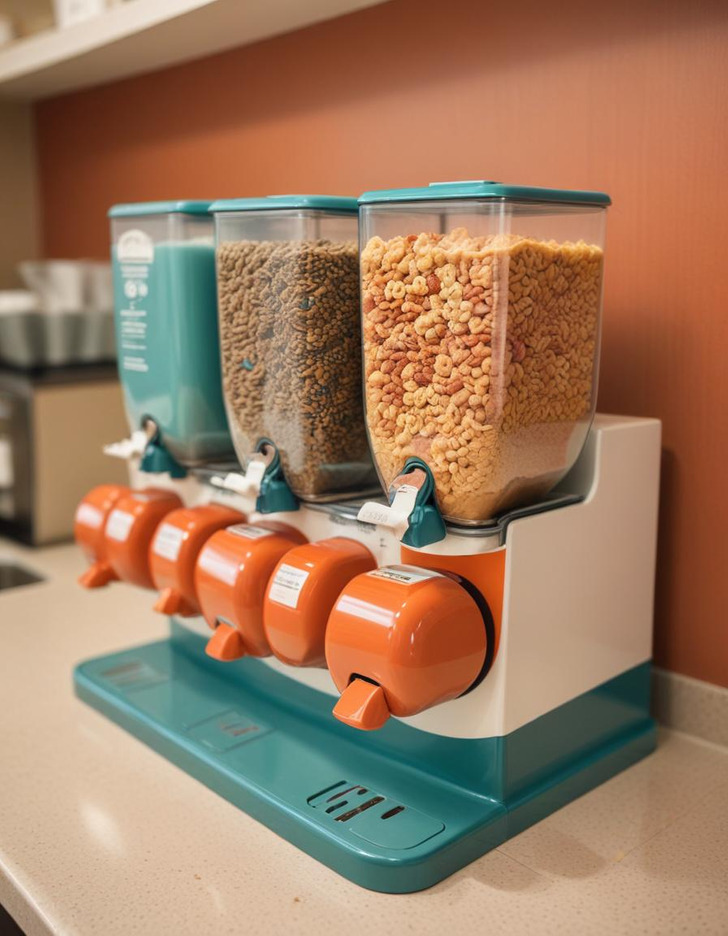
Avoid: While generally safer than perishables, experienced travelers are wary of open containers of cereals, nuts, or dried fruits that many hands have accessed. They also skip granola or muesli sitting out in large, uncovered bowls.
Order Instead: Look for cereals in individual boxes or dispensers with serving mechanisms that minimize hand contact. For nuts or dried fruits, choose sealed, single-serve packages if available. If you’re eyeing that tempting granola, see if there’s a staff member who can provide a fresh portion from the kitchen.
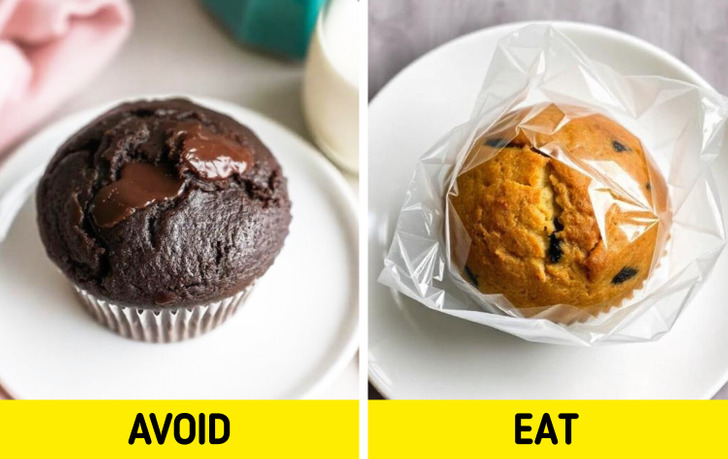
Avoid: Seasoned travelers often skip bread or pastries in open baskets where multiple guests have rummaged through with their hands. They’re also cautious of items like donuts or muffins that aren’t protected by individual wrappers.
Order Instead: Choose bread or pastries from covered displays, with tongs provided. Look for individually wrapped items like croissants or muffins. If there’s a toaster available, toasting your bread can add an extra layer of food safety. For spreads, opt for individual packets of butter or jam rather than open containers.
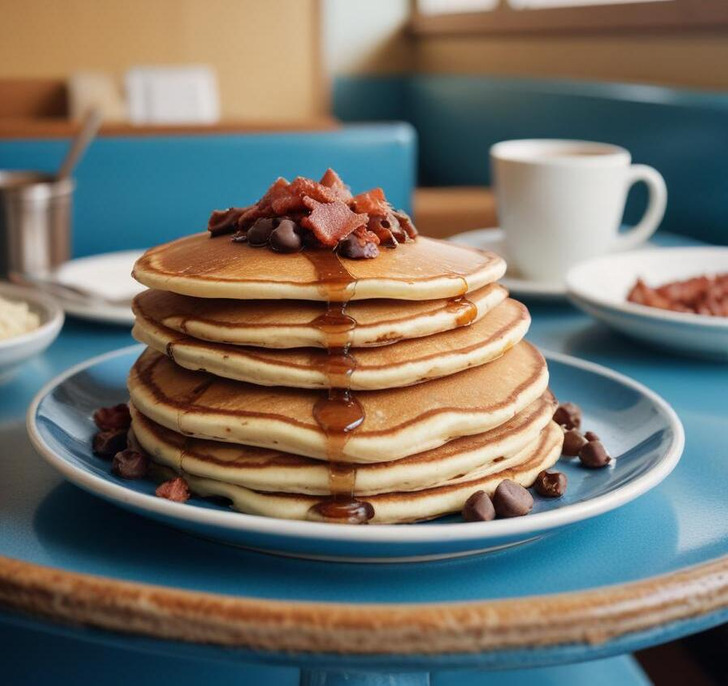
Avoid: Pre-made waffles or pancakes sitting out on the buffet can become soggy and are prone to contamination from multiple hands.
Order Instead: If there’s a waffle iron or pancake griddle where you can make your own or watch them being freshly prepared, that’s the way to go. These hot-off-the-griddle options are not only safer but also tastier.
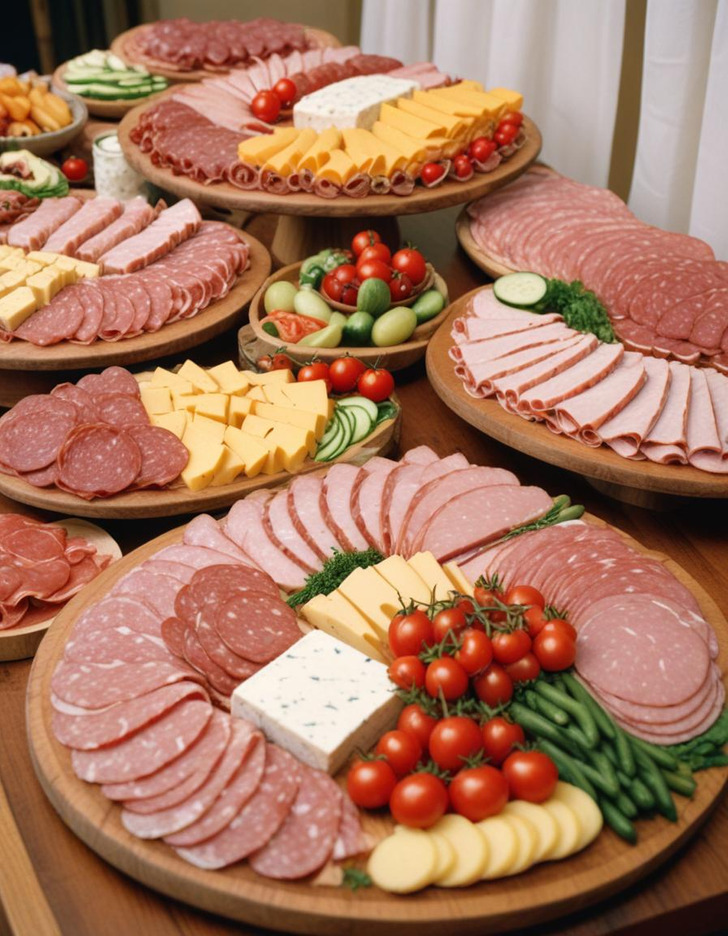
Avoid: Experienced travelers are wary of cold cuts and deli meats laid out on platters at room temperature. These perishable items can quickly become a breeding ground for listeria and other harmful bacteria.
Order Instead: Look for cold cuts that are kept in a refrigerated display or on ice. Some hotels offer individually wrapped portions of deli meats, which can be a safer option. If you’re unsure, ask if they can bring out fresh, chilled meats from the kitchen.
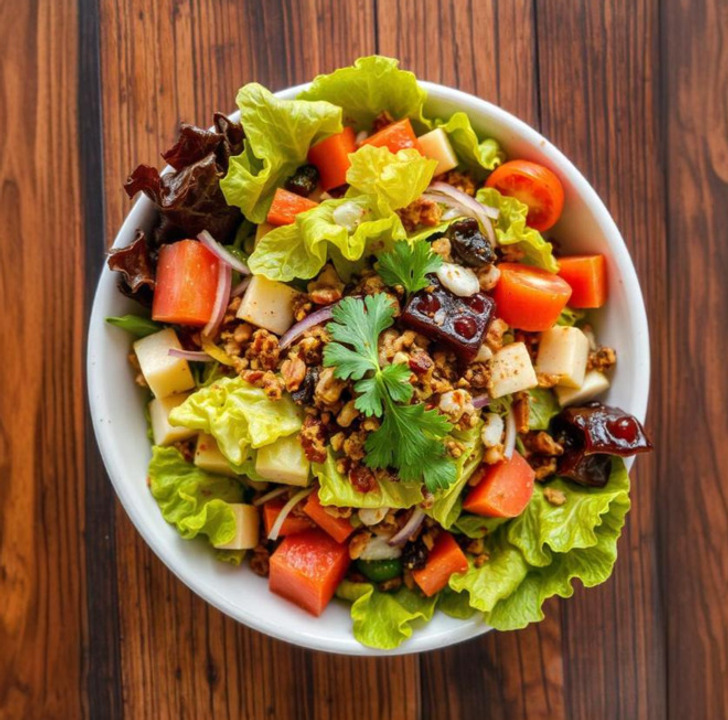
Avoid: While salads might seem like a healthy choice, seasoned travelers are cautious of salad bars with wilted greens or dressings that have been sitting out. They also skip items like raw sprouts, which can be a source of foodborne illness.
Order Instead: If you’re craving greens, look for whole leaves that you can wash yourself or ask for a freshly prepared salad from the kitchen. Choose dressings in individual packets or from chilled dispensers. For toppings, opt for items like cherry tomatoes or baby carrots that you can rinse yourself.
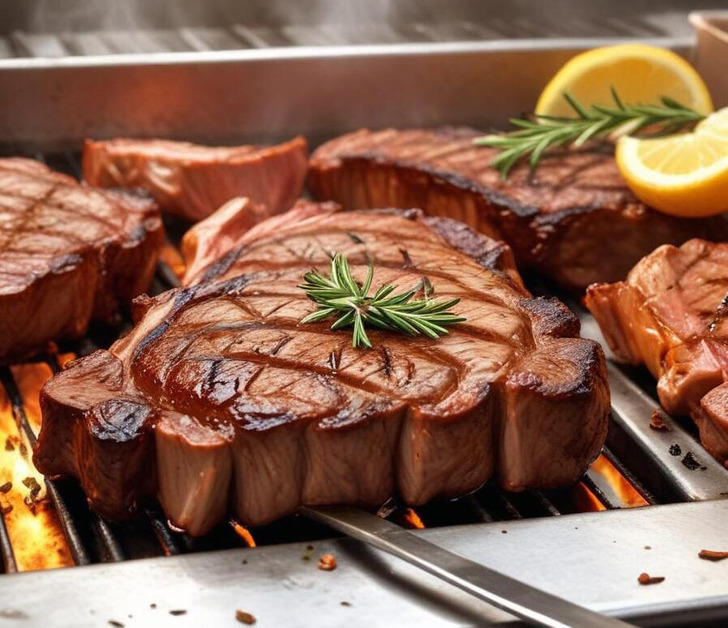
Avoid: Experienced travelers often skip pre-cooked steak sitting out on a breakfast buffet, especially if it’s not being kept at a safe temperature. Steak that’s been sitting at room temperature or under low heat for an extended period can be a breeding ground for bacteria. This is particularly true for rare or medium-rare steak, which may not have reached a high enough internal temperature to kill all potential pathogens.
Additionally, steak that appears dry, discolored, or has a layer of congealed fat on top is usually passed over, as these are signs it’s been sitting out for too long.
Order Instead: If you’re craving steak for breakfast (which can be a delightful treat, especially when traveling), look for a made-to-order station where chefs are grilling steaks fresh. This ensures that your steak is cooked to the proper temperature immediately before serving, significantly reducing food safety risks.
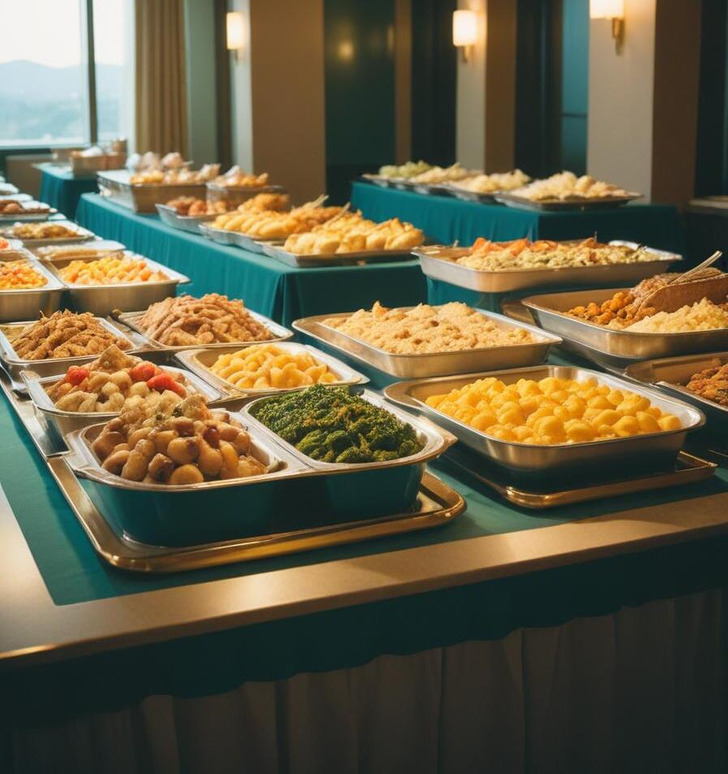
While hotel buffets can offer a wide variety of breakfast options, experienced travelers know that a bit of caution goes a long way in ensuring a healthy start to the day. By being selective and prioritizing food safety, they minimize the risk of foodborne illnesses that could derail their travel plans. Remember, when in doubt, it’s always better to err on the side of caution — your vacation will thank you for it!
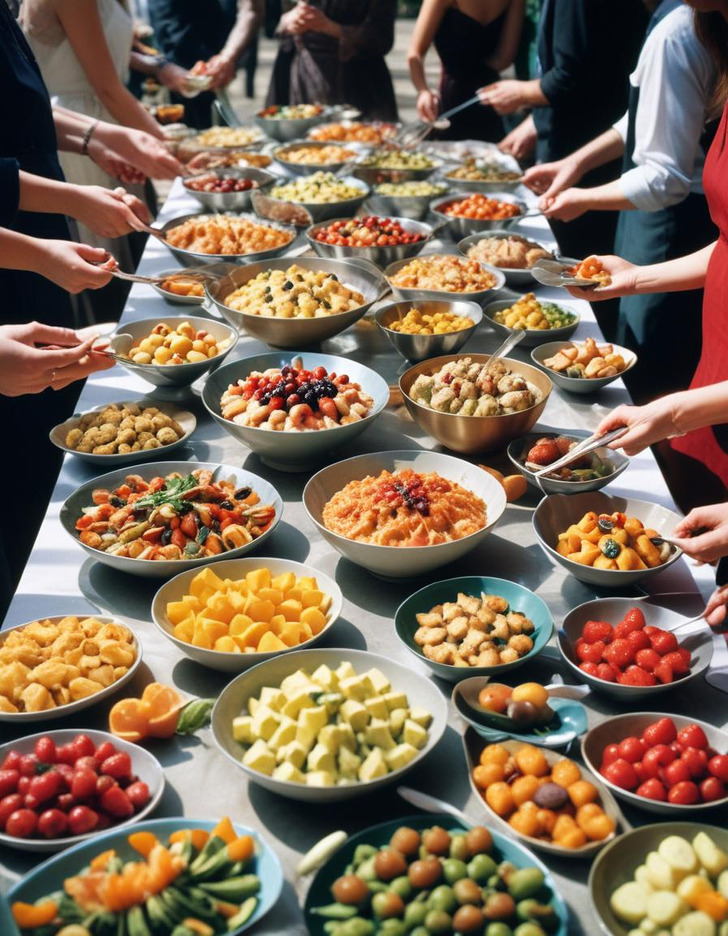
Experienced travelers are wary of shared utensils that have been handled by many guests. They typically skip:
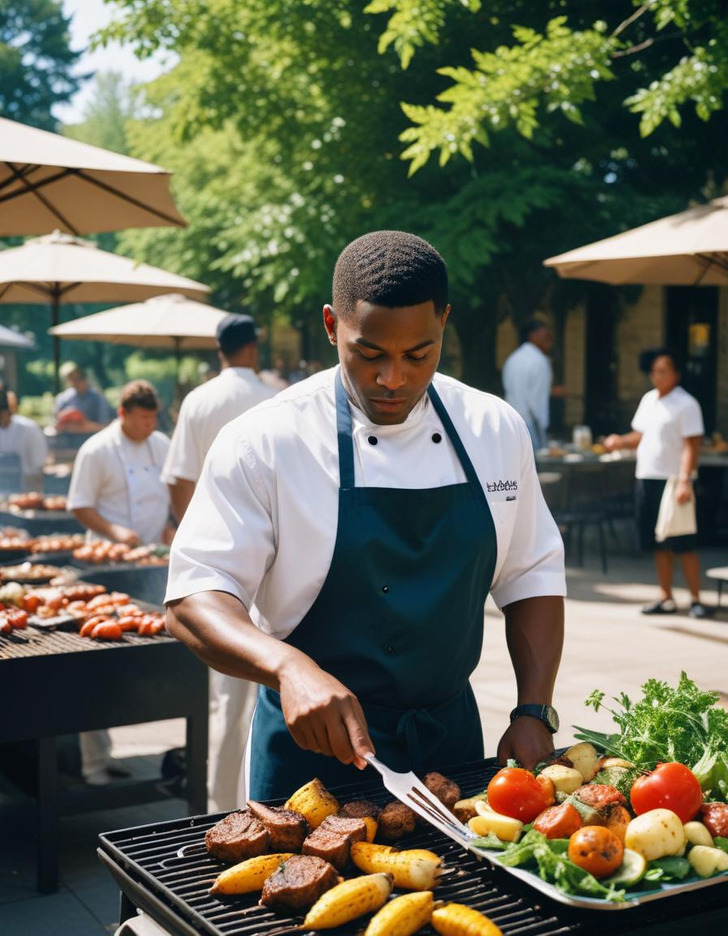
Don’t hesitate to ask hotel staff about food preparation and storage practices. Many establishments are happy to accommodate requests for freshly prepared items or to provide information about their food safety protocols. And always trust your instincts — if something doesn’t look or smell right, it’s best to skip it and choose a safer option.
While these tips can help you navigate hotel buffets like a pro, there’s a whole world of insider knowledge we haven’t touched on yet. Stay tuned for our next article, where we’ll reveal shocking secrets straight from all-you-can-eat buffets employees.











